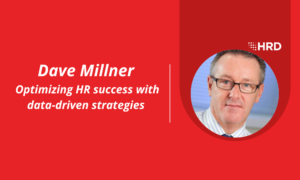The power of analytics in HR: Measuring business impact
- 2 Min Read
By analyzing data, HR can identify hidden causes of problems and prioritize its efforts, thereby demonstrating its value to the business and driving performance.
- Author: HRD Connect
- Date published: May 17, 2023
- Categories

As Dave Millner, author, futurist, and consulting partner at HRCurator, rightly states, “Data is the backbone of HR’s ability to demonstrate its impact on the business. It is a critical tool that allows HR to show its commerciality and business focus.”
In today’s data-driven world, HR professionals must have a financial mindset, understand the organization’s strategy and the business sector, and be savvy when it comes to organizational matters.
Using data to measure business impact
Using data to measure the business impact of HR and increase accountability is crucial. By analyzing data, HR can identify hidden causes of problems and prioritize its efforts, thereby demonstrating its value to the business and driving performance. As Millner notes, “HR can go beyond just focusing on costs and instead focus on driving performance by using data to identify areas for improvement and prioritize efforts.”
HR practitioners don’t necessarily need to have expertise in statistical analysis. Instead, as Millner suggests, they can focus on becoming “data and analytics translators”. This means working with key performance indicators (KPIs), metrics, and basic analysis to help deliver more complex projects. In cases where expert support is needed, HR can bring in the necessary specialists to get the job done.
HR’s role is to understand the client’s needs and work with experts to implement the findings. Communication of the results to the client is also a critical part of the process. As Millner emphasizes, “HR practitioners can play a crucial role in making the HR function more data-driven by understanding the client’s needs, working with experts to implement findings, and effectively communicating the results.”
Becoming data and analytics translators
In conclusion, data is a powerful tool for HR professionals to demonstrate their commerciality and business focus. By becoming “data and analytics translators” and working with KPIs, metrics, and basic analysis, HR professionals can play a crucial role in making the HR function more data-driven. By understanding the client’s needs, working with experts to implement findings, and effectively communicating results, HR professionals can demonstrate their value to the business and drive performance.


